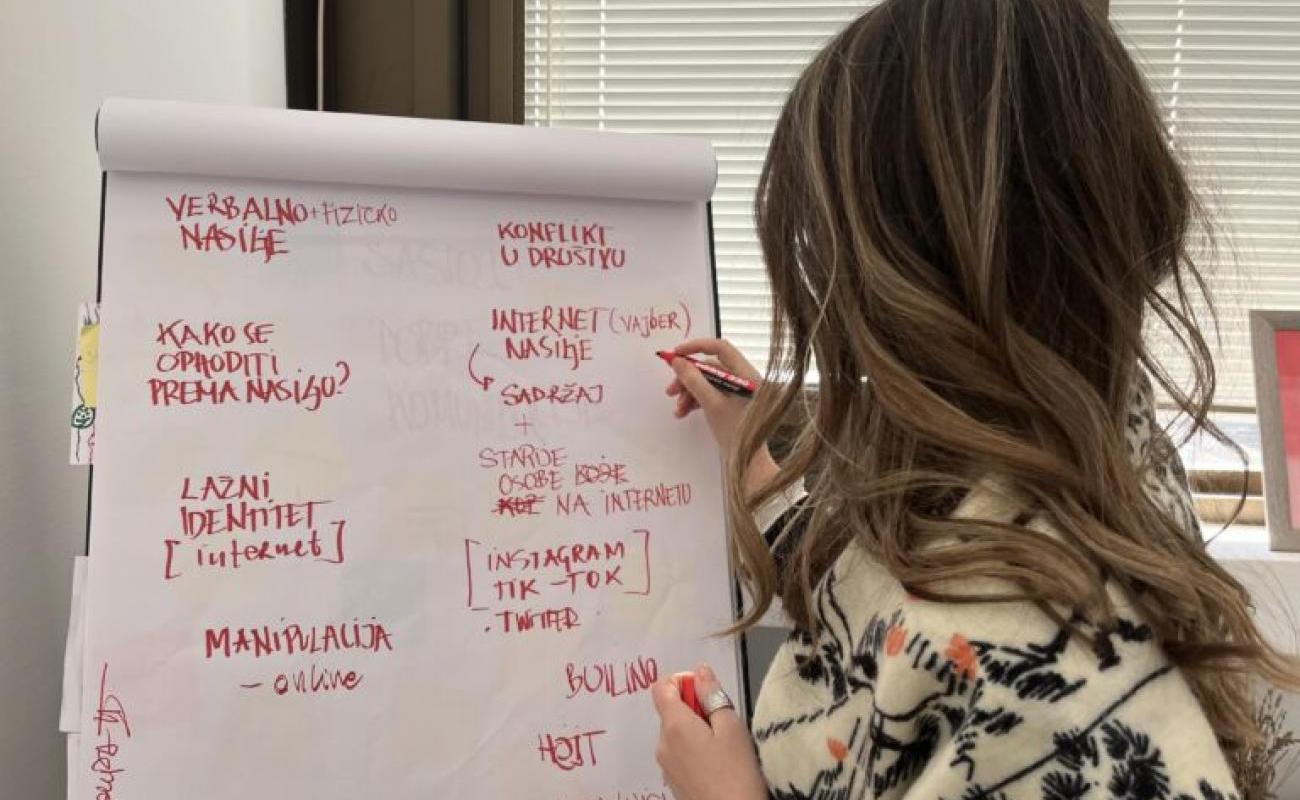What’s hidden in the Suitcase of Psycho-tools?

For young people to learn how they can cope with pressure, preserve their mental health, and develop the skills necessary for healthy development in the period of adolescence, they can take a look at the Suitcase of Psycho-tools.
This website, funded by the European Union as part of the project “Responsibility and Solidarity: Citizens Take the Initiative,” brings together young people in a virtual space and serves as a tool for support, education, engagement, and communication on topics in the field of mental hygiene.
The NGO Portret is celebrating its tenth birthday this year. With numerous projects and programmes, they try to provide support to young people, Executive Director Branka Ćalasan explains for Europe House.
Practice has shown that young people and their families face an ever-widening range of problems brought to them by modern society and a fast-paced lifestyle.
“They are predominantly caused by the situation caused by the emergence of the Covid-19 virus, and some of the reasons are the excessive use of devices – telephones, computers, tablets,” Branka pointed out.
The consequences can be very serious. Deficiency or loss of social skills in real contacts, disorders: in nutrition, sleep, mood, alcohol and drug abuse, premature risky sexual relations, problems in communication, adaptation, and learning are just some of them.
On the other hand, the answer is only one solution – supporting the development of psychological resilience.
Thanks to the support of the European Union, the NGO Portret developed a support programme for the transition to adulthood, intended for young people in the territory of the Municipality of Bar. However, due to its digital features, it will be available to young people throughout Montenegro.
“”SUITCASE PSYCHO – TOOLS” aims to create psychological resilience in the transit period of adolescence, develop the skills necessary for healthy development in the modern, post-covid age and awaken activism in the field of mental health,” emphasised Branka.
As part of the project, young people will be able to attend workshops and learn about personal mental healthcare strategies.
Research by this NGO shows that young people spend an average of five hours in front of a screen. That’s why they felt it was important to give them the opportunity to be the creators of the digital space they use as mental health activists.
“This website offers relevant information in the field of mental health, through contact and communication, and will influence the suppression of stigma related to topics in this field, encourage young people to get involved, and as a result nurture mental health in the community,” she concluded.
The NGO Portret confirmed to us that working with young people is an inexhaustible source of inspiration.
“We build to demolish – to build – to demolish” – is a reality from the perspective of a young man that directly points to the senselessness of the entire “adult” actions. Youth despise consequences, and that is its strength,” Branka recalls an anecdote from her practice.
The first workshop within the project is approaching, and Branka and her colleagues expect a lot of work. Europe House will soon host them, so that together we can support young people in Podgorica.
The project “Responsibility and Solidarity: Citizens Take the Initiative” is financed by the European Union and implemented by the FAKT Fund for Active Citizenship.
